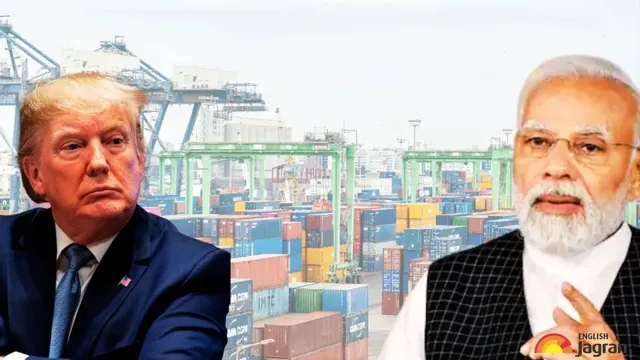- By Shivangi Sharma
- Wed, 27 Aug 2025 07:12 PM (IST)
- Source:JND
The US decision to impose 50 per cent tariffs on Indian goods has sent shockwaves through key export-oriented sectors in India. With the US being India’s largest trading partner, the new tariffs could reshape trade flows, trigger job losses, and weaken India’s competitive edge in global markets.
According to estimates by the Global Trade Research Initiative (GTRI), nearly two-thirds of India’s total exports to the US, worth USD 60.2 billion out of USD 86.5 billion in FY25, now fall under the steep tariff bracket. Government estimates are slightly lower, at around USD 48.2 billion, but the impact is undeniable.
Gems And Jewellery
The gems and jewellery industry is among the worst-hit. The US is India’s largest buyer, accounting for nearly 30 per cent of the sector’s global sales. In FY25, India exported over USD 10 billion (Rs 87,600 crore) worth of gems and jewellery to the US.
Surat, the world’s leading hub for diamond polishing, is already seeing a sharp slowdown in American orders. Colin Shah, MD of Kama Jewellery, warned that the 50 per cent reciprocal tariff places Indian exporters at a 30–35 per cent disadvantage compared to competitors from countries with lighter trade barriers.
ALSO READ: 'MAHA Headache': Congress' Swipe At PM Modi's 'MAGA+MIGA=MEGA' Phrase After Trump's Tariffs On India
Textiles and Apparel: Tiruppur Feels the Heat
The textiles and apparel sector, India’s second-largest export earner, faces particularly harsh consequences. The US is India’s largest buyer, with USD 10.8 billion worth of imports annually. However, with 63.9 per cent effective duties, Indian garments risk losing out to Bangladesh and Vietnam, both of which enjoy lower tariff structures.
The Tiruppur cluster in Tamil Nadu, responsible for 30 per cent of India’s ready-made garment exports and employing more than 600,000 workers, is especially vulnerable. Exports of ready-made garments alone totalled USD 5.33 billion in FY25, much of which now stands threatened.
Seafood
India’s shrimp and seafood exporters are also staring at steep losses. The U.S. imports nearly half of India’s shrimp exports, valued at USD 2.4 billion (Rs 20,000 crore). But with the tariff now lifting the total duty to 60 per cent, Indian shrimp will be priced out by Ecuador, which enjoys preferential access under a trade pact and pays just 15 per cent duty.
Auto Components
The US is also the largest market for Indian auto components, which were worth USD 6.6 billion (Rs 58,000 crore) in 2024. The sharp tariff increase could dent India’s competitiveness in this high-value export category, potentially pushing buyers toward alternatives in Mexico or Southeast Asia.
Carpets, Furniture And Leather Goods
Exports of carpets and home textiles, valued at USD 1.2 billion in FY25, will now face effective duties of 52.9 per cent. Combined with rising inflation in the US, demand is expected to shrink further, with buyers eyeing suppliers in Turkey and Vietnam.
The leather and footwear sector has also been hit with the full 50 per cent duty. Already burdened by rising raw material and logistics costs, exporters fear the tariffs could wipe out their thin profit margins.
Chemicals And Wider Impact
The tariff shock extends beyond consumer goods. Organic chemicals, which make up almost 54 per cent of India's exports to America, are now also heavily hit. Officials have cautioned that many shipments would be rendered commercially unfeasible by the new tariffs, resulting in layoffs and retarded growth.
A Looming Trade Setback
Industry groups such as the Confederation of Indian Textile Industry (CITI) have called the US move a "huge setback" for exporters. "It has made more difficult an already trying situation and will substantially impair our capacity to compete for a greater share of the US market," CITI stated.
ALSO READ: Trump's 50% Tariff Comes Into Effect: Textiles, Gems And Indian Labour Market Worst Hit | Key Points
With almost 55 per cent of Indian exports to the US directly affected, the tariff increase is not merely an economic setback, but also a strategic setback for India's trade diplomacy. Unless exemptions or renegotiations are forthcoming, exporters are flagging off reducing shipments, dwindling market share, and intensifying exposures in sectors with millions of employees.

